Welcome to one of the most active flamenco sites on the Internet. Guests can read most posts but if you want to participate click here to register.
This site is dedicated to the memory of Paco de Lucía, Ron Mitchell, Guy Williams, Linda Elvira, Philip John Lee, Craig Eros, Ben Woods, David Serva and Tom Blackshear who went ahead of us.
We receive 12,200 visitors a month from 200 countries and 1.7 million page impressions a year. To advertise on this site please contact us.
|

|
|
Learn to accompany a singer
|
You are logged in as Guest
|
|
Users viewing this topic: none
|
|
Login  | |
|

  
XXX
Posts: 4400
Joined: Apr. 14 2005

|
 RE: Learn to accompany a singer (in reply to Anders Eliasson) RE: Learn to accompany a singer (in reply to Anders Eliasson)
|
|
|
Call me crazy, but anybody out of compas, be it the guitarrist, singer, dancer, is doing a big time disservice to a performance. I dont mind if they dont catch the right tempo in the first place - ive seen high level performances where for example the singing, when it entered, slowed down everything. Wrong tempo, but slowing down, accelerating is still ok, opposed to not knowing where you are in compas, skipping beats, misinterpreting compas... maybe its not that obvious for non-musicians but it ruins the whole feeling and is a disrespect to the art IMO. I only see this happen with low level performers, never high level ones, hence, i dont think its a matter of question whether guitar follows or not (of course it does), but a question of which level the performers are. But yeah, i guess you are supposed to accept that s*hit if you want to get anywhere with (cante) accomp in Spain  ? ?
_____________________________
Фламенко
|
|
|
|
REPORT THIS POST AS INAPPROPRIATE |
Date Feb. 16 2010 6:55:02
 |
|

   
Ricardo
Posts: 14828
Joined: Dec. 14 2004
From: Washington DC

|
 RE: Learn to accompany a singer (in reply to XXX) RE: Learn to accompany a singer (in reply to XXX)
|
|
|
quote:
Call me crazy, but anybody out of compas, be it the guitarrist, singer, dancer, is doing a big time disservice to a performance.
You are not crazy, but there is an important angle to consider. Years ago I had a long wined arguement with Estela either here or over at FT regarding cante and compas. She kept stating that compas for a singer is different then for a guitarist, and I thought she was a complete nut to be honest. The reason was because I was used to playing for singers that sing the songs for baile, so that the compas fit like a glove, or right in a square box, so tightly intertwined with the rhythm of the guitar, it becomes easy to hear the singer alone and be able to come in perfectly with him or her at any point during the singing.
But after many years of studying, especially older singers, and watching rito y geografia, I realize there is a big distinction to be made in flamenco. It is not so much modern vs tradtitional, because in the old days everything was traditional. The division is between amature flamenco vs professional flamenco cante. The interesting thing is that a huge body of composition and style is associated with amature singers. Hence the folk music type idea of the cante. In this sense, as the cante evolved, each generation had their own interpretion of both the actual notes and rhythms. Truly an oral tradtion until singers started making recordings, and performing for dancers choreografies. So a singer such as Lebrijano learned how to sing from his mom, but had to force his mom's sort of "freestyle" rhythmic approach, into a clear metered structure, so as it could work with any different dancer or guitarist. So even though it is thought of as the "same" cante, you can call the professional version more like proper and musical....but at the same time an important aspect of cante is removed. The freedom of the singer to place the melody as he or she feels over top of the compas.
And I mean even those amature singers can keep compas with palmas or table knocking and sing that way. And a lot of singers from Jerez are self proclaimed amatures, and at the same time the CREATORS. Then you have mairena or who ever wants to record the same cante, all squared off. So you can't say the orginal way is WRONG cuz, well, that was HOW the song was suposed to go all along.
And that is what I think estella was talking about. THOSE types of singers that did it since they were born and just let the guitar "find the chords" while keeping compas, and they were free to sing as they feel. Yet, to just kind of sing randomly is not really accpeptable now adays, and of course there is a fine line between improvising that way, and just doing "whatever".
So, for a guitarist to accompany there is an art to doing it that way, where the singer is followed, and you don't stick to a solid boxed in chord structure, cuz that is actually over simplifying what cante is all about. I know it sounds hard to understand, or like any singer can sing however they want. I want to restate there is a difference there between someone that really knows the compas inside and can manipulate the melody "out of the box" so to speak, like many of the old creators were able to do. Nowadays few young singers are true creators or improvisors and interpret cante either as was recorded, or as learned for baile. In this sense, you can see why some aficionados of the old singers and style feel cante is "dying out" with each new generation.
Hope that makes some sense.
Ricardo
_____________________________
CD's and transcriptions available here:
www.ricardomarlow.com
|
|
|
|
REPORT THIS POST AS INAPPROPRIATE |
Date Feb. 17 2010 4:39:01
 |
|

   
Ron.M
Posts: 7051
Joined: Jul. 7 2003
From: Scotland

|
 RE: Learn to accompany a singer (in reply to Ricardo) RE: Learn to accompany a singer (in reply to Ricardo)
|
|
|
Hi Ricardo,
About this "rhythmic freedom" you are talking about amongst the "amateur" singers (or singers in a non-professional setting...like a party with family and friends), or like Anders saying that sometimes in his experience, a singer may come in early on 10...
Is it a bit like say, when a Blues singer comes to the last line at the finish of a Blues song, they may repeat that line over and over, even slow it down for the sake of underlining the sentiment?. (eg..Janis Joplin...BB King)
The band is just expected to follow, even though the verse is no longer 12 bars in length...and just have to keep an eye on the singer for a signal of when they are going for the end.
I know it's not quite the same thing, but it is an example of the rhythmic "rules" of a fairly rigid form being broken, but still "correct".
Sorry for the over-complicated post...I'm still trying to work out if I've understood your post correctly, so haven't got my ideas quite "framed" yet.
cheers,
Ron
|
|
|
|
REPORT THIS POST AS INAPPROPRIATE |
Date Feb. 17 2010 5:09:44
 |
|

   
Ricardo
Posts: 14828
Joined: Dec. 14 2004
From: Washington DC

|
 RE: Learn to accompany a singer (in reply to Ron.M) RE: Learn to accompany a singer (in reply to Ron.M)
|
|
|
quote:
ORIGINAL: Ron.M
Hi Ricardo,
About this "rhythmic freedom" you are talking about amongst the "amateur" singers (or singers in a non-professional setting...like a party with family and friends), or like Anders saying that sometimes in his experience, a singer may come in early on 10...
Is it a bit like say, when a Blues singer comes to the last line at the finish of a Blues song, they may repeat that line over and over, even slow it down for the sake of underlining the sentiment?. (eg..Janis Joplin...BB King)
The band is just expected to follow, even though the verse is no longer 12 bars in length...and just have to keep an eye on the singer for a signal of when they are going for the end.
I know it's not quite the same thing, but it is an example of the rhythmic "rules" of a fairly rigid form being broken, but still "correct".
Sorry for the over-complicated post...I'm still trying to work out if I've understood your post correctly, so haven't got my ideas quite "framed" yet.
cheers,
Ron
It could be that when Anders hears a singer, he wants the song to fit the song he has in his head rhythmically, so he wants to adjust the compas of his guitar to match. But what I am saying is that when some old style singers I have seen and heard do that, the guitarist does NOT do that, instead keeps the normal compas and accents but just places his chord changes in a different spot in the compas. For solea or Alegrias it is pretty simple where those places might be, because it is only 2 rhythmic places. Either 3 or 10. If you sense the singer is crossed rhythmically, then you change AFTER him or her on either the next 3 or the next 10, which ever comes first. For both Solea and Alegrias I have observed this happen.
So it is not that the singers are totally "out" of compas, it is just they may be a half compas crossed. When he hears an early count 10, the singer, who does not count, was probably feeling the 6 as the down beat and going off of the 9, the way a square box singer would go off of the 3. In some cases a stretching of the letra may shift it all back over a half compas later, but you would not realize that if you try to change the compas of the guitar but cutting beats to make it fit the way you normally would hear it with a singer that sings for baile. Singing that way is not ideal for baile OF COURSE, and any dancer would not hire such a singer for a show that does that regularly, but I am saying that singing that way IS legitimate puro cante, and you can find many great singers from the old days that sing that way.
OK after all THAT, there is a possiblity the singer has no clue about the song or tempo or compas, can't do palmas himself or herself, and is just singing the song as they hear it in their head so the ins and outs are just completely random all over the compas. That is different. I would have to hear it. But considering Anders was claiming the Jerez Solea por buleria in the uploads was "out of compas" I am thinking it could be like I was saying above. We just need to hear an example.
Ricardo
_____________________________
CD's and transcriptions available here:
www.ricardomarlow.com
|
|
|
|
REPORT THIS POST AS INAPPROPRIATE |
Date Feb. 17 2010 5:30:01
 |
|
Guest

|
 RE: Learn to accompany a singer (in reply to Ricardo) RE: Learn to accompany a singer (in reply to Ricardo)
|
|
|
Hola
I once watched Pascual de Lorca accompany a singer who went out of compas on stage. I was so surprised that I started to count and realised that the singer was cruzao but Pascual was in compas and still accompanying.
I asked him about it afterwards. Basically, used to street juergas, I used to stop and tell the singer he was out of compas (he was usually borracho), but Pascual said all you have to do is listen to the cante, give the cantaor the chords he calls for and when you remate at the end, everyone will probably come together again. Easier said than done, but thats what I try to do now.
I have also seen Rancapino with Niño Jero sing an entire alegrías cruza and the people applauded at the end.
Another morning Ranca was singing alegrías in a college with Fernando Moreno. I was sitting in the front row and when he entered in the wrong place, I looked at my novia, smiled and whispered "está cruzao". When I looked up, Ranca was looking at me and smiling too. Menos mal que somos amigos!
Incidentally, without wishing to upset the thread, Rancapino´s wife died last week, without much fanfare but with the same impact on his extended family and friends.
Sean
|
|
|
|
REPORT THIS POST AS INAPPROPRIATE |
Date Feb. 17 2010 8:06:34
 |
|

   
Ricardo
Posts: 14828
Joined: Dec. 14 2004
From: Washington DC

|
 RE: Learn to accompany a singer (in reply to XXX) RE: Learn to accompany a singer (in reply to XXX)
|
|
|
quote:
ORIGINAL: Deniz
I just listened to the out of compas Solea por Buleria. You mean it is medio compas where it changes to major key at the end? Well i have never heard medio compas in other than buleria. To my ear it sounds bad, but maybe there is a better version of another singer doing the transition more smoothly. This way it just sounds like an interruption.
Having said that i have nothing against creativity in compas, for example early endings. But you have to know what your doing. Just crossing the compas out of self-purpose should not be allowed even for the holy cante. (having said that, a point that has not been mentioned, singing works different than guitar playing, its much less "staccato" per beat. So there is naturally more freedom for a singer rhythmicwise imo)
Actually not just the major key part but the entire recording, he starts almost ALL the letras in the middle after count 7, rather then count 1 like many of us might be used to. My point is not that they cross compas for "self purpose" but actually, the whole concept of this 12 beat square box is not really the best. There are 2 major head points in the compas, the 12 and 6, and to a singer they might not seem very different at all. To a guitarist they seem different because of how we accent and change chords. In that sense you can see why the half compas idea of bulerias works. It is actually quite odd why there are not more examples the guitar cutting the compas in half for Solea, solxbul, or alegrias, as IS the case with bulerias.
As I mentioned there do exist a few examples on Norman's site of the half compas solea por buleria, which just drives home the point that the concept of 12 as a "rule" is not and never was a rule, more of an after thought for teaching.
I say it is the baile that started the entire concept of 12 beats, both counting, teaching, choreographing, and even forcing the cante to fit....in a way it never needed to before.
Hope that makes some sense.
Ricardo
_____________________________
CD's and transcriptions available here:
www.ricardomarlow.com
|
|
|
|
REPORT THIS POST AS INAPPROPRIATE |
Date Feb. 17 2010 12:55:50
 |
|

  
XXX
Posts: 4400
Joined: Apr. 14 2005

|
 RE: Learn to accompany a singer (in reply to Ricardo) RE: Learn to accompany a singer (in reply to Ricardo)
|
|
|
Yes i guessed it and, forgot to mention, i was referring to the guitarrist stating the singer would have no idea about compas.
I see what you mean Ricardo, definitely makes sense. But thats a big call with saying the 12beat is because of dance, no? Today, even in a non-dance performance it is hard to think about a square solea or solpb or any 12 beat form. Historically you may be right. I guess until i find a half compassed solpb that pleases my ear, i would stick to the 12 beat thing because of its rhythmic quality, opposed to the more square concept of bulerias. A singer might see it different of course. In case of doubt in a concrete performance, i would rather like to see the group being together with the 12 beat and let the singer have his "freedom" instead of cutting the compas to match the singing. Well, in fact i dont mind anybody improvising on compas, it is done too few anyway.
To put it in a nutshell: for bulerias its imo good to think in 6s and let the 12beat be the exception. For all other palos the half compas should be the exception IMO.
_____________________________
Фламенко
|
|
|
|
REPORT THIS POST AS INAPPROPRIATE |
Date Feb. 18 2010 14:35:47
 |
|
 New Messages New Messages |
 No New Messages No New Messages |
 Hot Topic w/ New Messages Hot Topic w/ New Messages |
 Hot Topic w/o New Messages Hot Topic w/o New Messages |
 Locked w/ New Messages Locked w/ New Messages |
 Locked w/o New Messages Locked w/o New Messages |
|
 Post New Thread
Post New Thread
 Reply to Message
Reply to Message
 Post New Poll
Post New Poll
 Submit Vote
Submit Vote
 Delete My Own Post
Delete My Own Post
 Delete My Own Thread
Delete My Own Thread
 Rate Posts
Rate Posts
|
|
|
Forum Software powered by ASP Playground Advanced Edition 2.0.5
Copyright © 2000 - 2003 ASPPlayground.NET |
0.109375 secs.
|


 Printable Version
Printable Version



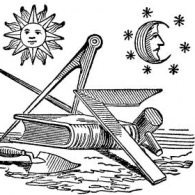


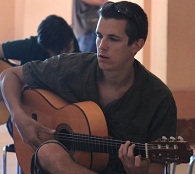

 and when they enter after 10 in an alegria instead of after 12, you have to put you 3 where the singers new 3 is. Difficult stuff.
and when they enter after 10 in an alegria instead of after 12, you have to put you 3 where the singers new 3 is. Difficult stuff. 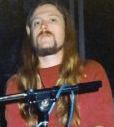
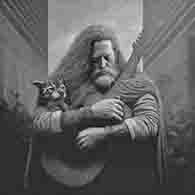
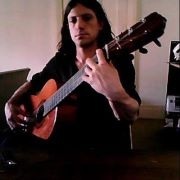

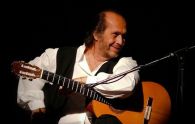
 ?
? 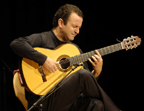
 New Messages
New Messages No New Messages
No New Messages Hot Topic w/ New Messages
Hot Topic w/ New Messages Hot Topic w/o New Messages
Hot Topic w/o New Messages Locked w/ New Messages
Locked w/ New Messages Locked w/o New Messages
Locked w/o New Messages Post New Thread
Post New Thread